Diversity, Equity, & Inclusion

The APFA Diversity, Equity, and Inclusion Committee promotes all that makes our members unique and work from the core, which is our membership being our most valuable asset.
It is within this safe space on this committee that all flight attendants are treated with respect and consideration in an atmosphere that promotes unity and strength.
Our committee is committed to fostering an environment within APFA that recognizes the wealth that lies with our diversity. We, as a committee, seek out opportunities to expand our understanding of that diversity and how to best utilize it to empower flight attendants and the greater working-class community. While this is just a start, we understand that this work is ever growing and changing. With that in mind we welcome thoughtful and respectful dialogue to help broaden the spectrum of thought in terms of empowering our membership and workers around the world.
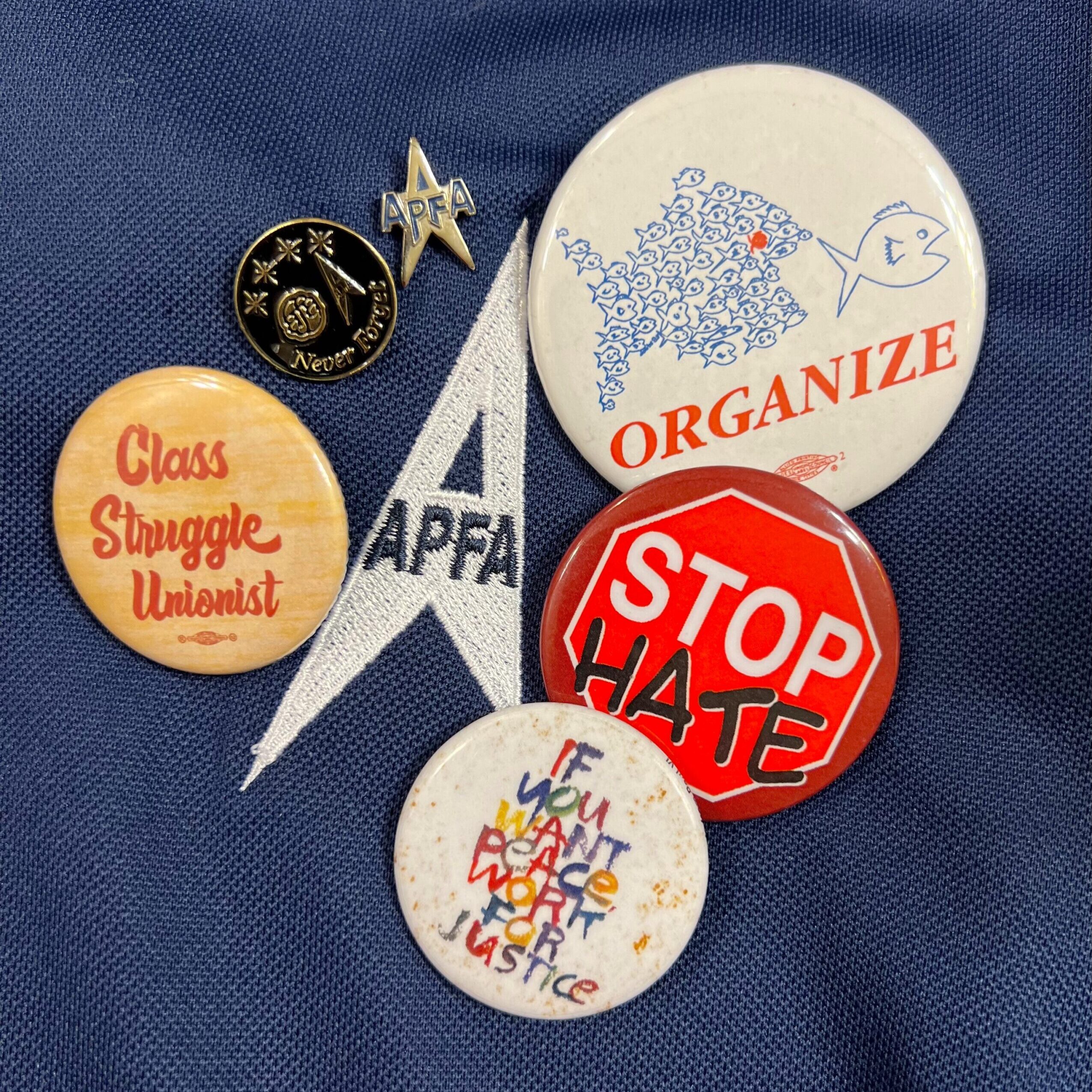

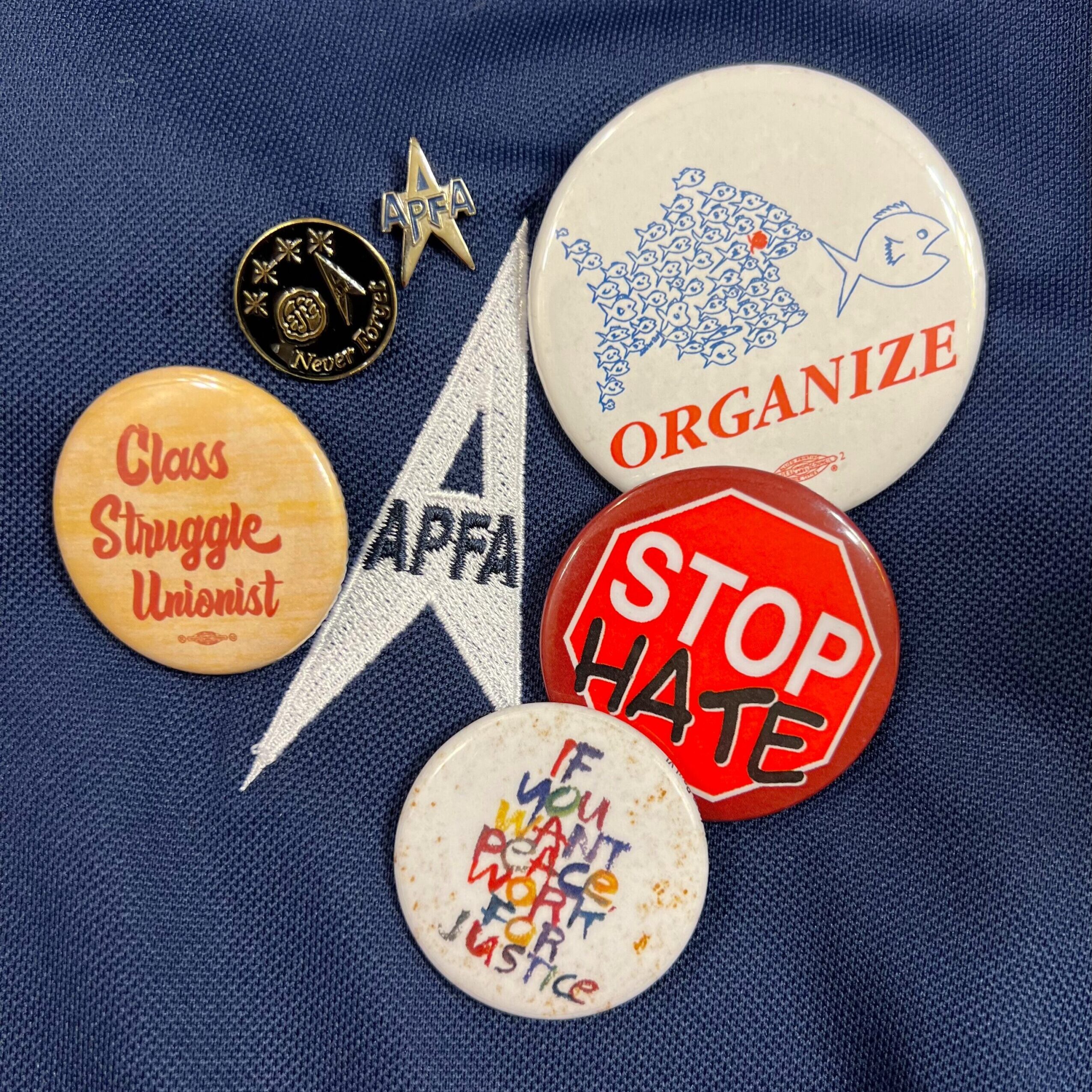

Making Changes
Some of the areas we have begun working on within our committee include areas where we can be more intentional in our use of language through a greater awareness of how our words and actions matter. We can be better and do better at our workplace and our union being an environment where everyone feels a sense of acceptance and there is opportunity for participation and inclusivity. We focus on the reasons why it matters to change our way of thinking and our behaviors as well as how we can put our words into action to help us all feel a sense of belonging.
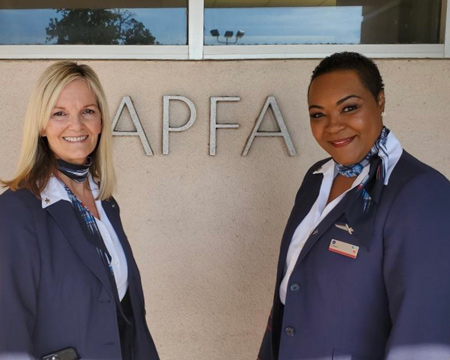
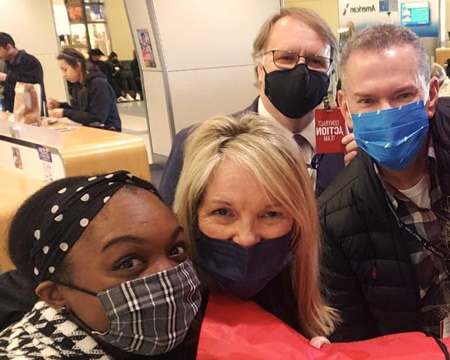
The use of pronouns is an important piece in respecting a person’s self-identity. Our pronouns are the labels we give ourselves to describe who we are and are what is used to identify us in society. We take for granted the common pronouns used every day are sufficient, but these labels miss the mark in helping everyone feel respected and sometimes hinder our efforts to show we value a person or group's worth. We have talked about the importance of using labels that are inclusive to ensure we are doing all we can to build a more inclusive environment and recognize each person’s own truth.
Using inclusive pronouns is more equitable, inclusive, and honors our diverse workforce. We are constantly placing our own pronouns on people, and we make assumptions about the gender of a person all the time. We are not always accurate and when we use the wrong pronoun, it can be harmful, hurtful, and disrespectful.
Some suggestions we can all make right now to show we care and assure everyone is valued are:
— Instead of ma’am or sir, we could just simply say hello or good morning.
— We can use they, them, their or use their name until we know their pronouns.
— Instead of ladies and gentlemen, you could say: everyone, colleagues, friends, folks.
They are called “micro” because they are subtle and fall into a category that may be well-intentioned and a person is unaware of their harm to others. Microaggressions can also be deliberate acts of bigotry. Usually, people are unaware of the interpretation of the words they use or behaviors they exhibit, and therefore it is so important we are all more aware.
Microaggressions happen every day and whether they are intentional or unintentional verbal and nonverbal actions, they are rude, insensitive and communicate derogatory, hostile, or negative messages to people of a minority or marginalized group. These actions or behaviors repeat and affirm stereotypes.
Some examples are:
— To an Asian person, “You must be good in math.”
— A person of a dominant race telling a minority; “I know what you go through as a racial minority.”
— A person describing a black person by saying; “They speaks so well.”
There is plenty that can be done to counter Microaggressions. One step in the right direction is to gain a deeper awareness of our own ignorance and simply be more aware of what we think before we speak. We can also use the rule of opposites. Develop a habit of using micro affirmations by asserting small acts of acceptance, appreciation, understanding, and respect to describe an individual with feelings of engagement, comradery, comfort, and enthusiasm towards members of a group or an individual.
Attitudes about age might affect our relationship with one another and when we feel unappreciated, disrespected, and are treated differently because of our age it does real damage to us and can become a self-fulfilling prophecy. A Yale study about ageism found our lifespan and health are impacted on the way we think about ourselves and others as it relates to ageism. The study states that the negative impact on ageism affects us mentally, impacts our physical health, and shortens our life expectancy.
Ageism refers to stereotypes (how we think), prejudice (how we feel), and discrimination (how we act) towards others or oneself based on age. Ageism affects everyone, both the oldest and the youngest, and when younger people experience it, it is called reverse ageism.
We all have negative attitudes about age and many times it can be self-directed ageism. This is that negative self-talk about our own age. It is not just the words we speak; it is the words we think, and, seniority and age play off each other in our work and in looking at things a little differently, we wonder how much ageism is already playing in our heads and what can we do to stop ageist attitudes?
Ageist thinking, feelings, and attitudes are often an unconscious bias, meaning we do not recognize we are doing it and how it impacts others and ourselves. It is the same driver that causes us to discriminate in some way. We use our differences to build ourselves up while marginalizing another. We do not realize we do harm to our own soul and psyche because negativity in any form against another pulls down the self.
To answer why does it matters, we must look at ourselves and discover our own ageist attitudes. Knowing all this, what can we do with our thoughts and feelings with one another and what can we do to stop ageist attitudes?
Here are some suggestions:
— Be the voice of the other side of this story and embrace our age, whatever that age is and embrace the journey!
— Look at everyone with an open heart, appreciating differences while discovering what we have in common.
— Bring awareness by talking about what ageism is, and its’ negative impact
— Stand up to negative age attitudes by speaking out when we see it happening.
With more information about ageism, we found Comprehensive Ageism Information & Education to be a valuable resource. As we continue to research ageism in our work, please share with us your own experiences with ageism and how we can continue to work on our ageist attitudes.
Actions
Labor Notes
On June 21, 2022, the platform for union organizations, Labor Notes, hosted a training opportunity for union workers and we were honored to be a part of the over 4,000 union member participants from all over the country. We heard from other union groups, such as teachers, nurses, trade workers. We attended training sessions to learn from other union groups and their own strategies for advocating for fair work contracts, better wages, work rules, and inspiring stories of workers who are fighting for a better, safer workplace.
The conference had workshops on topics around action, union bargaining and negotiations, and racial justice and climate justice. The conference was over the weekend of Juneteenth and there were inspiring stories and events to celebrate and acknowledge what this day means and how workplace struggles are linked to black liberation.
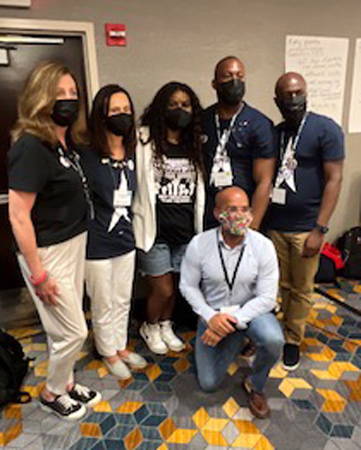
FAA (Federal Aviation Administration) Inclusive Language Summit
In November of last year, the FAA summit shared changes centered around the belief that progress being made in inclusive language broadens our hearts and minds in all areas of aviation. There is work being done in aviation when describing the positions and policies. We all gain by broadening our reach with more diverse applicants and one way we do this is using words to describe a position so that it is gender neutral. When we include more people in the application process and all aspects of the work environment, we gain and retain a more vibrant, creative, and diverse workforce. For example, FDNY are using the term “firefighter” instead of “fireman.” The FAA is replacing “cockpit” with “flight deck “and “airman” with “aviator.”
Our own APFA Negotiations are working on contract wording changes in consideration of all flight attendants. We all see the need for gender neutral language, as this shift in words opens the skies for everyone who has this dream of becoming a part of the aviation industry and when we open our pool to more people with neutral words and we value each person for what they contribute that makes them unique, we are building a good team.
This is the reason, and it is this foundation of trust, acceptance, and appreciation that makes us all better for our workplace, enables us to grow stronger in our own unique strengths, and allows us all to thrive in our personal life and in our profession.

Photos
DE&I Hotlines
7.10.24 – July 2024: Minority Mental Health Awareness Month
Approximately 20% of the US population lives with a mental health condition and approximately 70% of those with a mental health condition belong to the Black, Indigenous, People of Color (BIPOC) community.
Continue Reading6.24.24 – June 2024: Caribbean American Heritage Month
APFA would like to take a moment to recognize Caribbean American Heritage Month. Since 2006, June has been declared a month-long observance of the vast and rich cultures and heritages of the Caribbean people.
Continue Reading6.09.24 – June 2024: LGBTQIA+ Pride Month
June 2024: LGBTQIA+ Pride Month Sunday, June 9, 2024 June is a time to celebrate LGBTQIA+ Pride! This movement began with the historic Stonewall Uprising in 1969, and one year…
Continue Reading5.01.24 – APFA Endorses the CROWN Act
APFA Endorses the CROWN Act Wednesday, May 1, 2024 This week, U.S. House Representative Bonnie Watson Coleman (D-NJ-12) and Senator Cory Booker (D-NJ) introduced the Create a Respectful and Open…
Continue Reading12.01.23 – December 2023 Recognitions
December 2023 Recognitions including Universal Month for Human Rights, International Day of Abolition of Slavery, Bodhi Day, Our Lady of Guadalupe Day, Posadas Navideñas, and more
Continue Reading11.01.23 – November 2023 Recognitions
November 2023 Recognitions including Native American Heritage Month, All Saints’ Day, Day of the Dead (Día de Los Muertos), Veterans Day, Transgender Day of Remembrance, Thanksgiving, and more
Continue Reading10.03.23 – Celebrating 2023 National Latinx and Hispanic Heritage Month
We continue to celebrate and highlight the contributions and achievements of Spanish-speaking Americans throughout National Latinx Hispanic Heritage Month. Join me as we learn a little bit about New York-based Flight Attendant Edwin Rodriguez!
Continue Reading10.01.23 – October 2023 Recognitions
October 2023 Recognitions including Global Diversity Awareness Month, Feast of St Francis of Assisi, Indigenous People’s Day, World Mental Health Day, National Coming Out Day, Navami of Durga Puja, Halloween, and more
Continue ReadingApproximately 20% of the US population lives with a mental health condition and approximately 70% of those with a mental health condition belong to the Black, Indigenous, People of Color (BIPOC) community.
Continue ReadingAPFA would like to take a moment to recognize Caribbean American Heritage Month. Since 2006, June has been declared a month-long observance of the vast and rich cultures and heritages of the Caribbean people.
Continue ReadingJune 2024: LGBTQIA+ Pride Month Sunday, June 9, 2024 June is a time to celebrate LGBTQIA+ Pride! This movement began with the historic Stonewall Uprising in 1969, and one year later, the first Pride Parade…
Continue ReadingGet Involved
Meeting Information
We meet virtually the second Thursday of every month at 3pm CST via Teams. We discuss topics of interest and work on awareness projects in our commitment to continual growth in knowledge and understanding and we encourage everyone to be involved and grow with us in appreciation and acceptance.
If you are interested in joining the DE&I Committee and/or would like to reach out in any way please contact us at [email protected]
DE&I Committee expectations: We will take part in and assist with diversity, equity, and & inclusion awareness to enhance our knowledge and fulfill our responsibility to treat others with dignity and respect. We are expected to exhibit conduct that reflects inclusion during work, at work functions on or off the work site, and at all other Company/Union-sponsored and participative events. You must have time available to connect with DE&I and our fellow flight attendants, have a willingness to meet and participate on a volunteer basis, and be an APFA member in good standing who adheres to committee policies, procedures, and standards of ethical conduct.
Join / Apply
Do you believe in fostering greater understanding of one another? Do you have an open heart and mind that reflects inclusion and acceptance?
If you would you like to be a part of making things better here at DE&I for our flight attendants and are committed to growth in knowledge of human rights and current issues related to human rights, then APFA DE&I is a good fit for you!
Join us in our journey so that we can bring greater awareness to us all.
If you are interested in joining the DE&I Committee and/or would like to reach out in any way, we would love to hear from you. Please contact us at [email protected]
Contact Information
Diversity, Equity, & Inclusion Committee
Ondrea Wallace (Chair)
Jamie Marshall
Charlotte Sivels
Anya Washington

















